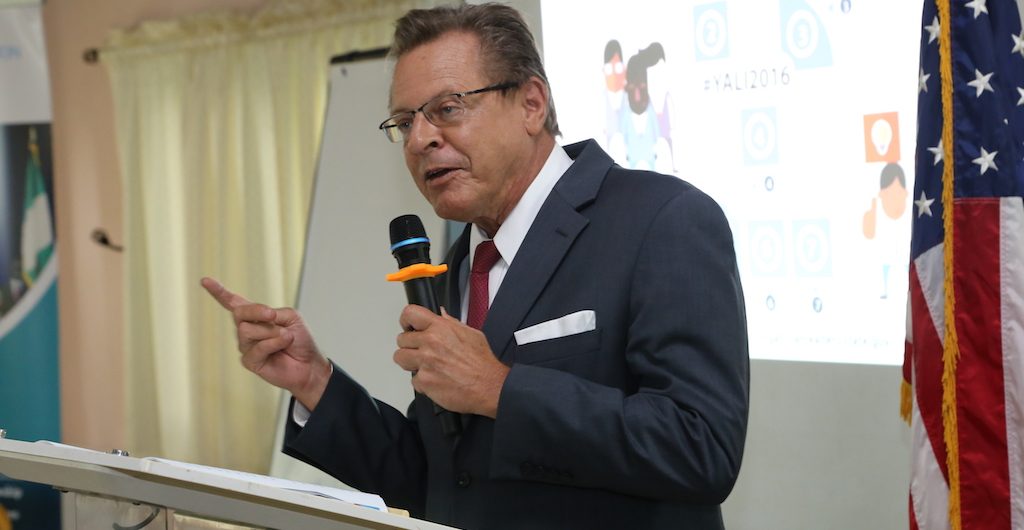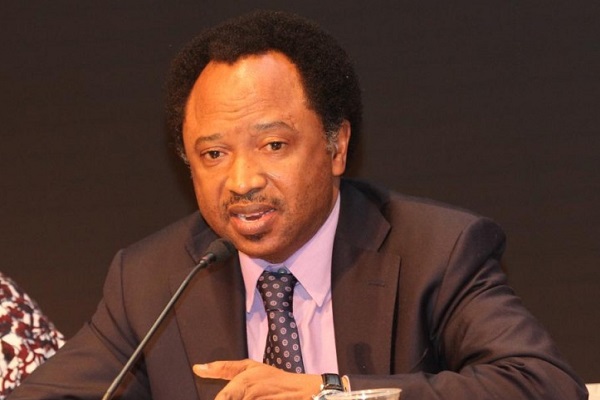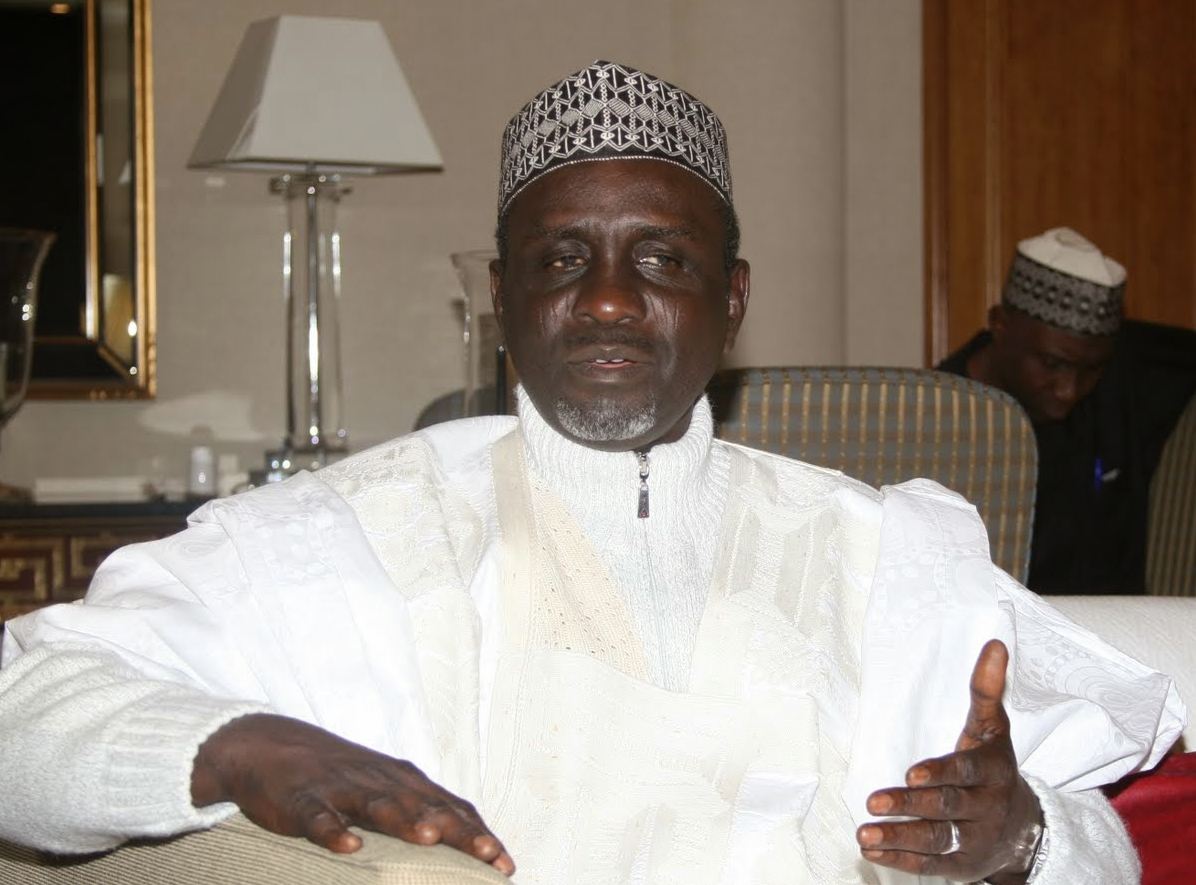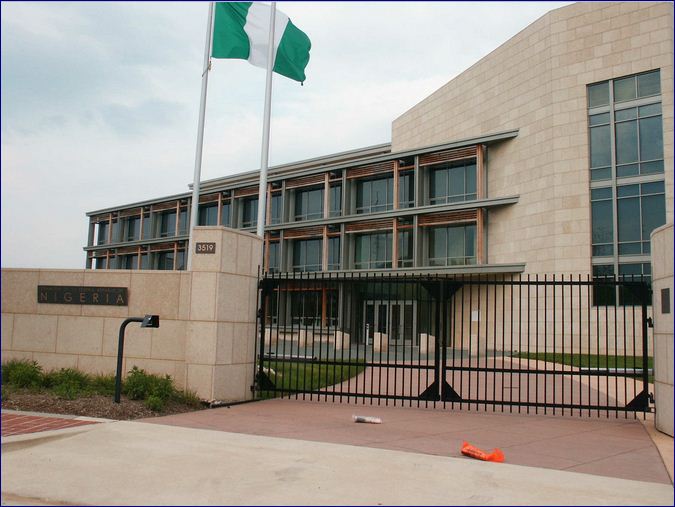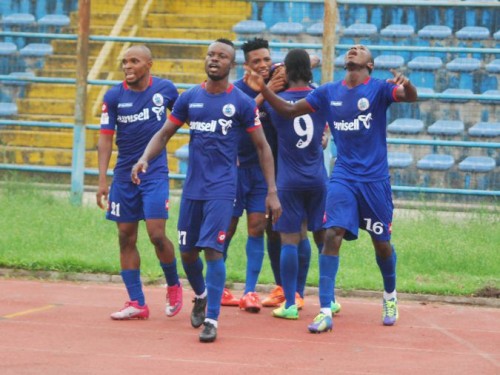John Bray, the US consul general, has commended journalist in Nigeria for not losing their “thirst for truth”.
Speaking on Wednesday at a programme to commemorate world press freedom day, Bray said Nigerian journalists have been firm despite the many challenges confronting them.
Quoting Reporters without Borders, a non-governmental organisation, he said a large population of the world live in countries where the freedom of the press is inhibited.
The programme was organised by the public affairs section of the US mission to Nigeria in collaboration with Lagos television (LTV).
Advertisement
“The role of the media as the watchdog on the government is key to the system of checks and balance, and smooth running of any democracy,” Bray said.
“Unfortunately, not all governments accept such public attention. According to Reporters without Borders, more than a third of the world’s people live in countries where there is no press freedom.
“Most of them are quasi-democracies, with systemic deficiencies in the electoral process, or countries where there is no system of democracy at all. Working under such conditions, journalists risk everything to hold regimes accountable.
Advertisement
“Before my arrival in Nigeria four years ago, I had read about the courage and sheer doggedness of the Nigerian press in the dark days of military dictatorship.
“In my time here, I have seen that you are still the voice of the forgotten. You have not lost your thirst for the truth or your willingness to go wherever a story leads you, thereby contributing to transparency, accountability, and good governance in your country.”
He, however, urged journalists to imbibe the habit of fact checking before writing stories, saying doing so will reduce their exposure to libel.
“You have to understand that with freedom comes more responsibility. You have to get it right,” he said.
Advertisement
“Check your fact before doing a story. It reduces your exposure to libel. Be objective. Take a look at all sides of a story before you publish.
“ A free press is a luxury, it is at the core of equitable development. If a people do not have the right to expression, you cannot build a political system needed to bring about change,” he concluded.
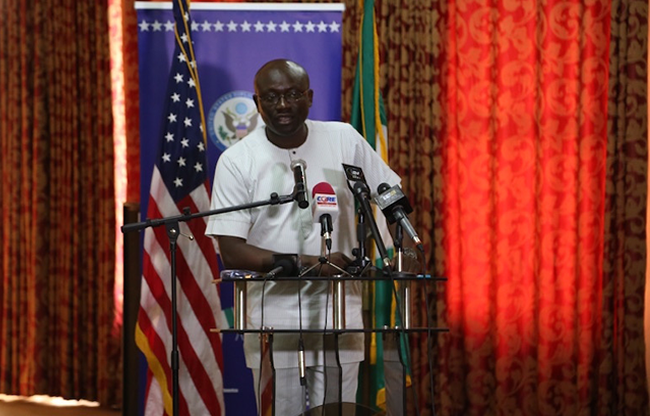
Other key speakers at the event were Simon Kolawole, chief executive officer (CEO) of TheCable Newspaper; David Ajikobi, Nigerian editor of Africa check; Oluyomi Lords, law lecturer, Nigeria Institute of Journalism (NIJ); Dapo Olorunyomi, publisher of Premium Times; Funke Egbemode, president, Nigeria Guild of Editors and Ralph Akinfeleye, professor of mass communication, University of Lagos.
Kolawole, who spoke on, ‘The making of a multi-skilled journalist in the digital age’, said participatory governance and accountability, which he described as the two core aspects of democracy, were sure ways to ensure press freedom in Nigeria.
Advertisement
“Essentially, democracy is about participation, it is about the people,” he said.
“We have millions of people casting their votes. We elected one president, 360 members of the house of representatives and 109 senators, minus the other levels of government.
Advertisement
“These people take decisions that affect us. Do they get back to us when they want to take decisions? By the time we vote for them, they move into Abuja, we are no longer part of the decision.
“I can assure you that if we were ever part of the agenda, we won’t be where we are. We all know what is going on in Abuja and the progress of Nigerian is not the number one item on their agenda.
Advertisement
“With the new age of digital journalism, the new media, we now have a situation where we have a voice. The digital age offers us an opportunity that the government would not offer us if it has its way.
“With participatory journalism, we are now bypassing some road blocks by coming together to voice out.”
Advertisement
On her part, said the press would not be free until it is treated as a business.
“We tend to forget as practitioners that the press takes care of everybody. But who takes care of us,” she asked.
“We have massive economic infringement on our economic freedom as an industry. We report it in the front pages when other businesses are in trouble, but who reports us when we run into trouble?
“The media is an industry, we are not an advocacy group. We cannot be free until they begin to treat us like a business.
“The press is a strong ally, we are a formidable force.You ignore us at your own peril. It is better for every community- political, economic, social, to err on our side.
“Those who lose sight of that sacred fact always bite their fingers at the end.”
Ajikobi buttressed the consul general by laying emphasis on the importance of fact checking in calling the government to account.
He called on journalists and the public to harness and utilise the benefit of fact checking, saying, “facts determine how we live our lives.”
Speaking on a lighter note, Akinfeleye said all other professionals will not be needed in heaven except for journalists because “those in the southern part will want to know what is happening in the northern part of heaven”.
H, however, advised journalists to practice “journalism of conscience, objectivity, balance and accuracy”.

